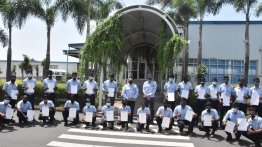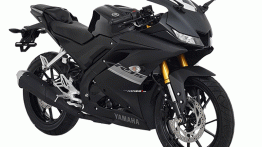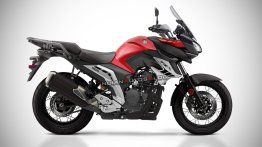India Yamaha Motor launched the combi-braking system equipped Saluto RX and Saluto 125 last week. YouTube channel Indian Bike has posted walkaround videos of these updated models.
Also read: Yamaha to introduce Bluetooth-enabled instrument clusters in India - Report
Yamaha has christened its CBS tech as Unified Braking System (UBS). The Saluto RX UBS is priced at INR 52,000* and the drum brake equipped Saluto 125 UBS is available at INR 58,800*. The front disc variant of the Saluto 125 retails for INR 60,500*.
*ex-showroom Delhi
Apart from the addition of CBS, the Saluto RX and Saluto 125 do not change with this update. Thus the Saluto RX uses the 110 cc, air-cooled, single-cylinder motor that churns out 7.5 PS of maximum power and 8.5 Nm of peak torque. The Saluto 125 draws 8.3 PS of maximum power and 10.1 Nm of peak torque from its 125 cc air-cooled, single-cylinder engine. Power is transferred via a 4-speed gearbox on both bikes.
Hardware on the bike includes conventional telescopic forks at the front and twin-sided shock absorbers at the rear. Stopping power comes from drum brakes on both ends while an optional front disc brake is available for the Saluto 125.
Meanwhile, Yamaha India’s newly appointed Chairman, Motofumi Shitara told Economic Times last month that the company’s focus in motorcycles will shift away from the mass market to the deluxe and premium segments (150cc and above). Shitara confirmed that India Yamaha Motor is studying motorcycles above 300cc and premium scooters with an engine displacement of 125-150cc. The 100-110cc motorcycles, on the other hand, will be mainly exported to markets like Africa and Latin America.
Also read: Yamaha R15 V3.0 with ‘black & yellow’ paint scheme spotted at a dealer
Currently, premium products R15 V3.0, the FZ series, and the scooters are chiefly contributing to India Yamaha’s sales. The YZF-R15 V3.0, for example, has registered a year-on-year growth of 231% in October 2018. During the same month, the Saluto and Saluto RX reported negative year-on-year sales of 92 per cent and 67 per cent respectively versus October 2017.


















